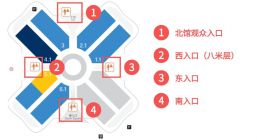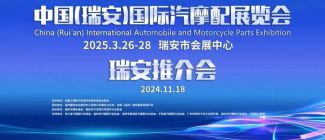If CES 2024 makes people believe that artificial intelligence (AI) will eventually change everything, then at CES 2025, AI is reshaping all industries.
From January 7th to 10th, 2025, the world's largest consumer electronics event, the International Consumer Electronics Show (CES) 2025, kicked off in Las Vegas, USA.
CES has always been a barometer of global technological innovation and the consumer electronics industry, even hailed as the "Tech Spring Festival Gala" in China.
According to official data from the exhibition, by 2025, the number of CES exhibitors and brands will reach 3680, with nearly 1500 Chinese companies participating, accounting for more than 30% of the total number of exhibitors. The expected number of visitors is 138000.
Unlike previous editions, at CES 2025, all services and products will become inseparable from AI. Regardless of whether products are labeled as AI or big models, AI has deeply entered every aspect of our lives, work, and production, reshaping all industries.
Ding Daoshi, an Internet analyst, told Geshi Motors that in the future, all industries will become AI industries. The development of AI will make our consumer electronics more intelligent and more accessible to mankind. This is the biggest change of this CES.
AI leads productivity transformation
At this year's CES, multiple companies have launched various artificial intelligence software and hardware products that can specifically help people improve production efficiency.
Among them, the combination of artificial intelligence and traditional computers, which can greatly improve personal office efficiency, has truly become popular with AI PCs.
During CES 2025, Lenovo officially released the ThinkBook Plus Gen 6 scroll screen AI PC. This product can be easily operated by pressing dedicated keys or gestures, and the 14 inch compact display screen can be vertically extended to a spacious 16.7 inch screen, with nearly 50% additional screen space available for use, providing a one-stop solution to meet the flexible and efficient office needs of business users. Whether it's document editing, data analysis, or presentation reporting, users can dynamically switch screen sizes based on tasks, while maintaining a thickness of 19.9 millimeters and a lightweight weight of 1.69 kilograms, making it easy to carry.
AMD has released the so-called "most powerful AI laptop chips" - the Ryzen AI Max and AI Max+series, which have 40 RDNA 3.5 computing units, 16 Zen 5 CPU cores, and 32 threads. They can handle high-resolution, complex light and shadow effects in game graphics and professional grade 3D design tasks, as well as run complex multi-threaded applications.
Intel is also making efforts in the AI PC field, launching the Core Ultra 200U series mobile processors that can provide up to 24 TOPS of computing power, achieving a balance between performance and energy efficiency. On the desktop end, 65 and 35W Core Ultra 200S series processors have been added to meet the needs of gaming, creation, and productivity.
With the support of giants such as Lenovo and Intel, the position of AI PCs in the global market continues to rise.
According to market research firm Canalys, 2024 marks a significant shift from traditional PCs to AI PCs. It is estimated that global AI PC shipments will reach 48 million units this year, accounting for 18% of the total PC shipments. Institutions estimate that the global shipment of AI PCs will exceed 100 million units by 2025, accounting for 40% of the total PC shipments; By 2028, the global shipment of AI PCs will reach 205 million units, with a compound annual growth rate of 44% between 2024 and 2028.
AI enables comprehensive evolution of automobiles
In the era of artificial intelligence, there has been a very interesting trend in the automotive industry: 'on the road' is intelligent cars; 'flying up' is flying cars and low altitude industries; 'standing up' is humanoid robots and embodied intelligence. The intelligent automotive industry is further developing into a collective intelligent industry, "said Zhang Yongwei, Vice Chairman and Secretary General of the China Electric Vehicle Hundred People's Association, at the recent Dajunshan Intelligent Automotive Technology Conference (2024).
As Zhang Yongwei said, at this year's CES, major car companies are competing to showcase their muscles in fields such as smart cars, flying cars, and humanoid robots.
Xiaopeng Automotive Ecological Enterprise Xiaopeng Huitian showcased a new split type flying car called "Land Aircraft Carrier", which places the aircraft directly in the trunk of the car. If needed, the car body "Aircraft Carrier" will automatically open the trunk and place the aircraft on the ground.
A "land aircraft carrier" measuring 5.5 meters in length, 2 meters in width, and 2 meters in height can enter an underground garage and obtain a Class C driver's license to operate. The aircraft supports both manual and autonomous driving modes, and can automatically dock with the mother ship during landing.
Compared to flying cars, the transformation brought by AI to autonomous driving technology is earth shattering.
At this CES, the Polar Krypton RT, a mass production autonomous vehicle developed in cooperation with Waymo, an American autonomous driving company, was displayed and will be delivered in 2025. Jike announced in 2022 that it would collaborate with Waymo to bring the ZEEKR M-Vision concept car into mass production.
Ding Daoshi pointed out that in the past year or two, after the emergence of large models, they have been applied in multiple fields. In just one year, car companies such as Huawei, Ideal, and Xiaopeng have made breakthrough progress in their autonomous driving technology because they have used end-to-end technology.
In July 2024, Xiaopeng Motors began pushing the XNGP intelligent driving system based on end-to-end big models to users. In September, car companies such as Huawei and Ideal have also started pushing corresponding intelligent driving systems based on end-to-end big models to users; NIO has applied end-to-end large-scale models to the AEB system and released its self-developed world model.
In terms of humanoid robots, Agaxi Intelligent Technology Co., Ltd. showcased the world's first end-to-end multimodal AI large model humanoid robot based entirely on Qualcomm SoC - Ultra Magnus. 'Tongtianxiao' can recognize approaching visitors, engage in smooth conversations with them, and flexibly pick up drinks before smoothly handing them over.
Sagitar Juchuang has released the second generation dexterous hand Papert 2.0, which has 20 degrees of freedom and a maximum load of 5000 grams. It has 14 force sensors on the fingertip and palm, and can operate an electric screwdriver with a four degree of freedom index finger. It can also accurately and moderately pick up chicken eggs.
The attractiveness of Chinese enterprises has significantly increased
It is worth mentioning that CES was once cold, with only 1100 Chinese exhibitors at the 2020 CES.
At that time, some industry insiders expressed that the attractiveness of CES to Chinese companies had decreased due to a series of internal and external factors. From one perspective, this indicates that Chinese companies are becoming more rational and focused on their business, and are becoming less interested in international conferences with more "runway" attributes than "release" attributes.
The attractiveness of this year's CES to Chinese companies has significantly increased.
The main Chinese car companies participating in this year's CES include Great Wall Motors, Xiaopeng Motors, Jike Motors, as well as exhibitors in the fields of autonomous driving and parts such as Hesai Technology and Black Sesame Intelligence.
Ding Daoshi stated that China has sent a large number of enterprises to participate in various fields such as consumer electronics, automobiles, and artificial intelligence at this year's CES, which can be said to have lit up CES and won the attention and recognition of Chinese innovation from all over the world.
Ding Daoshi believes that the reason for the significant increase in the attractiveness of this year's CES to Chinese companies is that after several years of savings, Chinese companies have not fallen behind in the field of AI at all. They are no longer simply followers, but have achieved leadership in certain aspects. Against the backdrop of slowing growth in the domestic market, Chinese companies need to seek new growth points and expand into the global market by showcasing our products and services at events such as MWC (Mobile World Congress) and CES, gaining recognition from consumers around the world.
AMS2024 Exhibition Guide | Comprehensive Exhibition Guide, Don't Miss the Exciting Events Online and Offline
Notice on Holding the Rui'an Promotion Conference for the 2025 China (Rui'an) International Automobile and Motorcycle Parts Exhibition
On September 5th, we invite you to join us at the Wenzhou Auto Parts Exhibition on a journey to trace the origin of the Auto Parts City, as per the invitation from the purchaser!
Hot Booking | AAPEX 2024- Professional Exhibition Channel for Entering the North American Auto Parts Market
The wind is just right, Qianchuan Hui! Looking forward to working with you at the 2024 Wenzhou Auto Parts Exhibition and composing a new chapter!
Live up to Shaohua | Wenzhou Auto Parts Exhibition, these wonderful moments are worth remembering!
Free support line!
Email Support!
Working Days/Hours!





